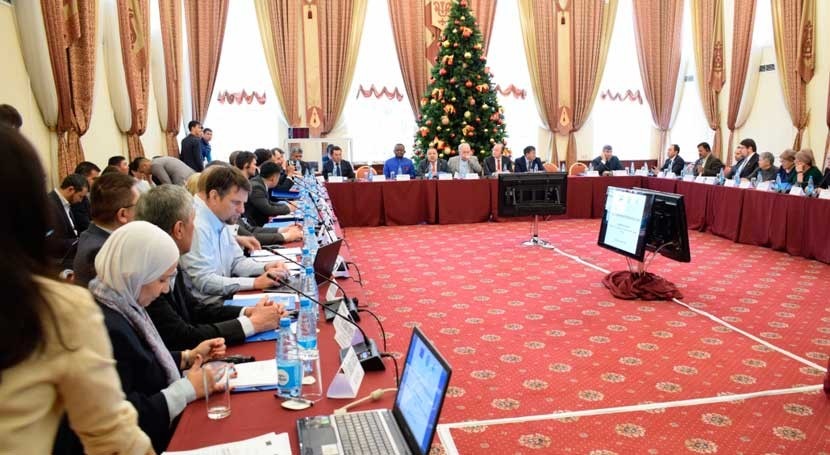The United Nations Industrial Development Organization (UNIDO) has convened a high-level workshop to present a draft “Health and Pollution Action Plan” for validation by Kyrgyz and international stakeholders. This action plan was developed in the context of a global project funded by the European Union (EU) called “Mitigating Toxic Exposures in Low and Middle-Income countries”. The project is being supported by the EU with €5m over the past three years and is implemented by UNIDO. It aims to help governments in low and middle-income countries to take action against environmental pollution and its impacts on human health. One of the five focus countries of the project is the Kyrgyz Republic.
The Health and Pollution Action Plan outlines pollution-related health challenges in the Kyrgyz Republic. It also contains two concept notes providing concrete project proposals for reducing air and water pollution in different parts of the country. Air and water pollution were also the main focus of the workshop.
The workshop was opened by three high-level speakers. Eduard Auer, Head of the Delegation of the European Union to the Kyrgyz Republic, highlighted the EU’s role in assessing the global scope and extent of toxic pollution and its impacts on public health. In view of the issues highlighted in the Health and Pollution Action Plan, he also stressed that sustainable development is a key component of the cooperation between the EU and the Kyrgyz Republic.
Commenting on the pollution-related health challenges facing the Kyrgyz Republic, Auer noted that air and water pollution caused 4,500 premature deaths in the country each year, representing almost 14% of all annual deaths. He said that the economic cost of this death toll is significant, causing losses in productivity estimated at between US$24m and US$31m.
Ozonnia Ojielo, United Nations Resident Coordinator to the Kyrgyz Republic, emphasized that pollution disproportionally affects the poor and vulnerable and noted that projects like this can make a significant contribution to the achievement of the Sustainable Development Goals (SDGs).
Arsen Ryspekov, Deputy Director of the Kyrgyz State Agency for Environmental Protection and Forestry (SAEPF), welcomed participants on behalf of the Kyrgyz Government and emphasized the need for action to reduce pollution and improve public health in the Kyrgyz Republic.
Workshop participants discussed air and water pollution challenges and how they can be addressed. The national perspective was enriched by presentations by experts from Austria, India, Russia and Turkey. In addition, representatives of two international financial institutions – the European Bank for Reconstruction and Development (EBRD) and the Asian Development Bank (ADB) – provided insights into their work in the Kyrgyz Republic and how it relates to air and water pollution in particular.




